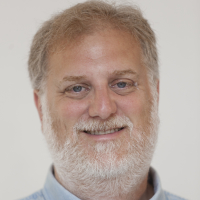I don’t know if “Zionism” is quite the word, since it’s something I started breathing in from childhood. Only later did I start to think in ideological terms, and there is still some slippage, a hands-breadth, between ‘Zionism’ and the warm, lived reality of my love for Israel. The Hebrew word, “Tziyonut” somehow always rings truer, closer to me, and to the ground.
My father, David, was born in Jerusalem, as was his mother, her parents, and onward, or back, to 1811, when my great-great-great-great grandfather, Shlomo Zalman Zoref, first arrived from Lithuania. He was part of a clutch of immigrants, latter-day disciples of the Gaon (“Great Genius”) of Vilna, a colossal scholar who’d bequeathed his disciples a dual, conflicted, legacy—the conviction that the supreme religious act was cloistered Torah study (and where better than the sepulchral Jewish Palestine of 1811?), and the suggestion, based on his reading of the Kabbalah, and his vibration to the spirit of the times, that the advent of the Messiah could be hastened by worldly means.

Some of the Gaon’s disciples took to the beit midrash, others, to the fields. Some of my ancestors were the former, but most were the latter; first, Shlomo Zalman, who set about building Ashkenazi institutions in Jerusalem, and was murdered for it by Arabs in 1851; and above all, his grandson, Yoel Moshe Salomon, who pioneered in journalism, publishing, institution building and, in 1878, founded Petah Tikva, the first Jewish agricultural settlement (along with several colleagues, one of whom turned out to be the great-great grandfather of my wife).
All this is to say, first, that I was raised in a family for whom Theodore Herzl, David Ben-Gurion and the whole Zionist crew were a bunch of Johnnies Come-Lately; indeed, the whole apparatus of the World Zionist Organization never meant much to me (though I always had a soft spot for the now-defunct Ha-Poe’l Mizrachi, the Religious Workers Party, in whose offices my parents first met, in the 1940s). Second, my most primal attachments to Israel are less ideological and have more to do with my father’s memories and my memories of him, the slant of the sunlight in his old childhood neighborhood near the Mahane Yehudah open-air market, the perfect, limpid Hebrew that flowed from his mouth, and the particular sheen of the rainwater on the asphalt of the Jerusalem streets that I walked obsessively, looking for him, after he died.
But of course there’s more to it than reveries of loss and longing. Living in Israel, first in young adulthood and now for the last ten years, has made me face—not only Jewishness, but pretty much everything—with more grittiness, honesty and authenticity than most anything I have ever known before or since. And that is the deepest Zionist revolution, taking responsibility for oneself, one’s historical moment and society.
Of course, people take responsibility everywhere, certainly in democracies. But there’s something in-your-face about the Zionist version, an alertness that makes you willingly forego comfort and tranquility, and throw yourself and your soul again and again at something uncertain. As a liberal, I don’t accept that the soul is the province of the state. But I know that without some deep commitments to the collective as well as to the individual, no decent polity can survive and living here has impressed on me as never before the necessity of solidarity and the preciousness of freedom.
Ideologically, what all Zionists—from Martin Buber, Rav Kook and Ben-Gurion, through Menachem Begin all the way to, God help and forgive us, Meir Kahane—have in common is the conviction that Jewish survival, physical and cultural, depend on the creation of a new kind of Jewish life in the Land of Israel. The internal Zionist arguments are thus over what we mean, by “new.” But no matter what, Zionism means, personally, spiritually, taking responsibility for one’s historical moment and place within it.
Being a Zionist in the diaspora means not only supporting the project of Israel, but also accepting responsibility for being a Diaspora Jew, and trying not to live vicarious Jewishness, as so many do, via Israel. There is, to be sure, something wonderful about the Jewish outsider-ness, the irony and the moralism. But in the end it can be a dodge, certainly in America. (Some while ago Jeff Goldberg, who, to be sure, knows a thing or two about taking responsibility, said in an online exchange with Shmuel Rosner that Israeli humorlessness is perhaps explicable since “who needs jokes when you’ve got F-15’s?” But you do have them, Rosner countered, you’re American. Deal with it.) Paradoxical though it may sound, to be an American Zionist is not to be an outsider.
My family history, and that of Zionism, reaches back to a time when Jews and Palestinian Arabs alike were both scrambling for footing beneath the Ottomans. World War One changed all that, and Jews and Arabs were now and since scrambling with one another. World War Two ended the internal, often brutal, Jewish argument, over whether you needed a state in order to survive. One is certainly entitled to argue in theory that there are better means of securing Jewish survival than a Jewish state, or at least this one, which regularly offers up disappointment and disillusion by the bucket-full.
But that argument must take place with a steady view of hard realities, tempered by the discipline of practical reason. It has to proceed from a bedrock commitment to Jewish survival and well-being, and to the well-being of all the people, Jewish and Arab, who live their lives here, under the sunlight, on the ground.




